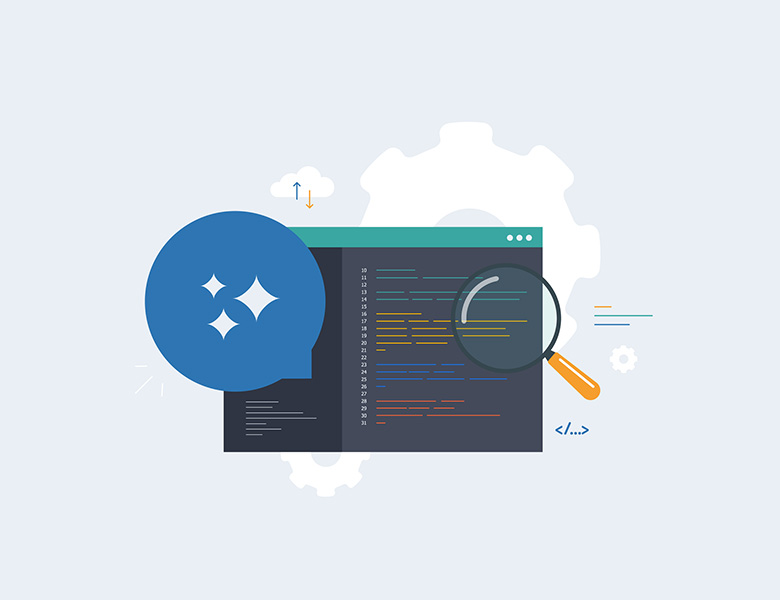If you're a small to medium-sized business struggling to keep up with the trends and constanly-changing consumer preferences of your target market, it may be time to reassess your decision-making process.
Consider the following: Are there any data collection tactics in place? Are decisions primarily informed by the insights derived from these tactics? Is there a dedicated department or employee responsible for collecting, analyzing, and presenting data related to your company's sales, product launches, repeat purchases, or return rates?
Embracing Business Intelligence platforms could be the solution to enhancing your decision-making capabilities and staying ahead in the market.
What is Business Intelligence?
Business Intelligence (BI) is the organized process of gathering, storing, and presenting complicated numerical data from different business sources in a way that makes it easier to make smart, data-driven decisions. A few examples of how using this information can help are with the following:
- Finding problems with distribution channels, customer demographics, code base, pricing strategies, competition, sales networks, and so on.
- Figuring out how well current or past advertising campaigns worked during certain time periods
- Evaluating customer quality
- Improving the quality of goods or services
- Keeping track of budgets and sales projections
- Keeping an eye on the company's finances and progress
- Meeting sales and profit goals
This is a change toward a new way of thinking and doing things in the organization, where decisions are based on documented analysis and evaluation. Without going into too much detail, a company that has full access to its most important data can make better decisions and handle tough times better.
So, the fact that professionals are putting more and more emphasis on learning data science shows how important BI is to modern business operations. In essence, using Business Intelligence correctly improves the accuracy, quality, and quantity of data in a company, while also making sure that mistakes are found and data is organized correctly.
When Is the Use of Business Intelligence Recommended?
Business Intelligence (BI) is useful for all kinds of companies, especially when they need to quickly gather and analyze data from different sources. It's necessary when businesses are having trouble because they can't see certain things clearly, like how their operations work, their finances, or market trends.
Moreover, as the demand for data processing and analysis increases among users and with the introduction of new data sources or technological advancements, the need for BI becomes even stronger.
BI is a powerful tool for making organizations more efficient by streamlining processes, promoting transparency, and making it easier to make smart decisions and plan strategically.
Benefits of Business Intelligence
Let's explore the benefits of business intelligence for your organization:
Improved Business Productivity: Business intelligence enables the assessment of departmental performance, fostering improved productivity. Visual reports and charts facilitate a clearer understanding of areas for enhancement, encouraging collective efforts towards common goals.
Real-Time Actionability: Unlike traditional reporting processes requiring frequent updates, BI dashboards offer real-time updates. This facilitates timely decision-making and actions within the organization.
Increased Data Transparency: Business intelligence provides access to optimized data, empowering businesses to delve into relevant information for enhanced transparency and comprehension.
Quick Insights: With business intelligence, accessing reports becomes effortless with a single click. This streamlines the process, saving time previously spent on filtering and manual report creation.
Data-Driven Decisions: Business intelligence empowers data-driven decision-making based on actual data. Leveraging past performance and future trends, organizations can make informed and effective decisions.
How To Start Using Business Intelligence
How can organizations integrate BI into their operations?
- Begin by assessing your needs: Identify the necessary data, how to collect it, and the insights you aim to derive.
- Select the appropriate BI tool based on your business size and budget.
- Ensure you have robust systems in place to securely store and manage your data, and that your team is adequately skilled.
- Start gradually by implementing BI in a specific department, such as sales, to acclimate staff and understand its functionalities.
BI methodology is a powerful tool all businesses that want to be more competitive and increase their revenue. But it's important to get help from experts in the field to customize solutions and find key performance indicators that are important for meeting sales goals and other business goals.
Successful Business Intelligence with Specialized BI Tools

Business Intelligence (BI) tools have become indispensable for modern businesses, facilitating data analysis and insights crucial for informed decision-making. Modern BI tools include advanced analytics, artificial intelligence, data visualization tools and dashboards. These tools allow companies to analyze data from various sources, such as financial systems, marketing data and customer information. Let’s see some of the most popular.
Power BI
Microsoft's dynamic business analytics tool Power BI enables companies to share insights and visualise data . Using Power BI's intuitive interface and extensive capabilities, users can create visually stunning and interactive reports and dashboards from unprocessed data.
Fundamentally, Power BI enables users to easily import and combine data from many sources by connecting to databases, cloud services, and spreadsheets. Users may easily create custom visualizations including charts, graphs, maps, and tables using Power BI's drag-and-drop interface after the data is imported.
Supporting in real-time data analysis and monitoring is one of Power BI's main advantages. Real-time decision-making and staying current with the latest insights become possible for users by tools like live data streaming and automated data refresh.
Power BI also provides robust collaboration and sharing capabilities, allowing users to securely share reports and dashboards with colleagues and stakeholders both inside and outside their organization. Power BI also integrates seamlessly with other Microsoft products such as Excel, SharePoint, and Teams, increasing its versatility and usability across a wide range of business environments.
Tableau
Tableau enables users to confidently make data-driven decisions, resulting in faster answers to questions, easier problem solving, and more frequent discovery of new insights. Tableau supports live data connections, allowing you to create real-time dashboards. Users appreciate Tableau's built-in data connectors, which make it easier to collect data from a variety of sources without requiring coding skills. The drag-and-drop interface of Tableau Desktop makes it simple to create detailed dashboards with a variety of chart and graph options.
While many users find Tableau's interface intuitive, particularly for navigating completed dashboards, others struggle with the steep learning curve, especially when creating complex visualizations. Furthermore, users have reported sluggishness when connecting to Big Data sources in real time, and speed issues are a common complaint.
Smaller teams and companies may find Tableau Desktop too expensive, especially because some sophisticated features call for the desktop client. Companies of any size who can afford its price range should use Tableau, especially those looking for a powerful standalone data discovery tool.
Qlik
Qlik is a powerful data visualization and discovery tool known for its ability to combine multiple data sources into a single analysis platform, regardless of their original formats. It seamlessly integrates and associates data from relational and non-relational databases, as well as platforms like Salesforce and Slack. its interactive analysis dashboards are easy to use even by non-technical people. Users can use simple click, hover, and drag actions to explore specific areas, select regions of interest, or add new fields. Qlik's speed, responsiveness, intuitive controls, and sleek design contribute to a positive user experience.
However, some users find that their developer experience with Qlik falls short. Setting up the tool can be difficult and require extensive training. Many users have expressed frustration with the lack of a version control feature, which requires integration with third-party tools. While Qlik excels at simple data analysis, some users believe it falls short when it comes to complex analysis. Qlik can integrate with RStudio, Python scripts, and other analytical tools, but the process is not simple.
Qlik Sense is best suited for mid-sized to large organizations that want to streamline self-service analytics for internal users while also presenting compelling data to clients and stakeholders. However, small businesses may find it prohibitively expensive for their requirements.
The Takeaway
The future of BI is being shaped by emerging trends such as AI-based analytics, real-time data processing, and predictive analytics. These developments will enable companies not only to understand historical patterns but also to predict future trends and make proactive decisions. The integration of AI and machine learning with BI tools is set to transform the way businesses approach data analysis, making it more efficient and insightful.
Business Intelligence is not just a tool for examining past performance - it is essential for predicting future trends and preparing for future challenges. As technology evolves, the scope and capabilities of BI tools will continue to expand, making them an essential part of business strategy.
Partnering with Solwey Consulting: Accelerating Innovation with Expert Software Engineering Services
Finding a reliable partner to navigate complex software development projects is paramount. Solwey Consulting, is a leading provider of software engineering services dedicated to empowering businesses with cutting-edge solutions.
With a proven track record of delivering exceptional results, Solwey Consulting has earned acclaim for their outstanding contributions to various projects across diverse industries.
At Solwey Consulting, excellence is not just a goal; it's our standard. Specializing in custom software development services, we are committed to delivering tailored solutions that address your unique business needs. Whether you require ecommerce development services or custom software consulting, our team is dedicated to guiding you towards success in today's competitive marketplace.
Experience the difference with Solwey Consulting and unlock the full potential of your business in the digital era. Contact us today to learn more about how we can help you achieve your growth objectives.





